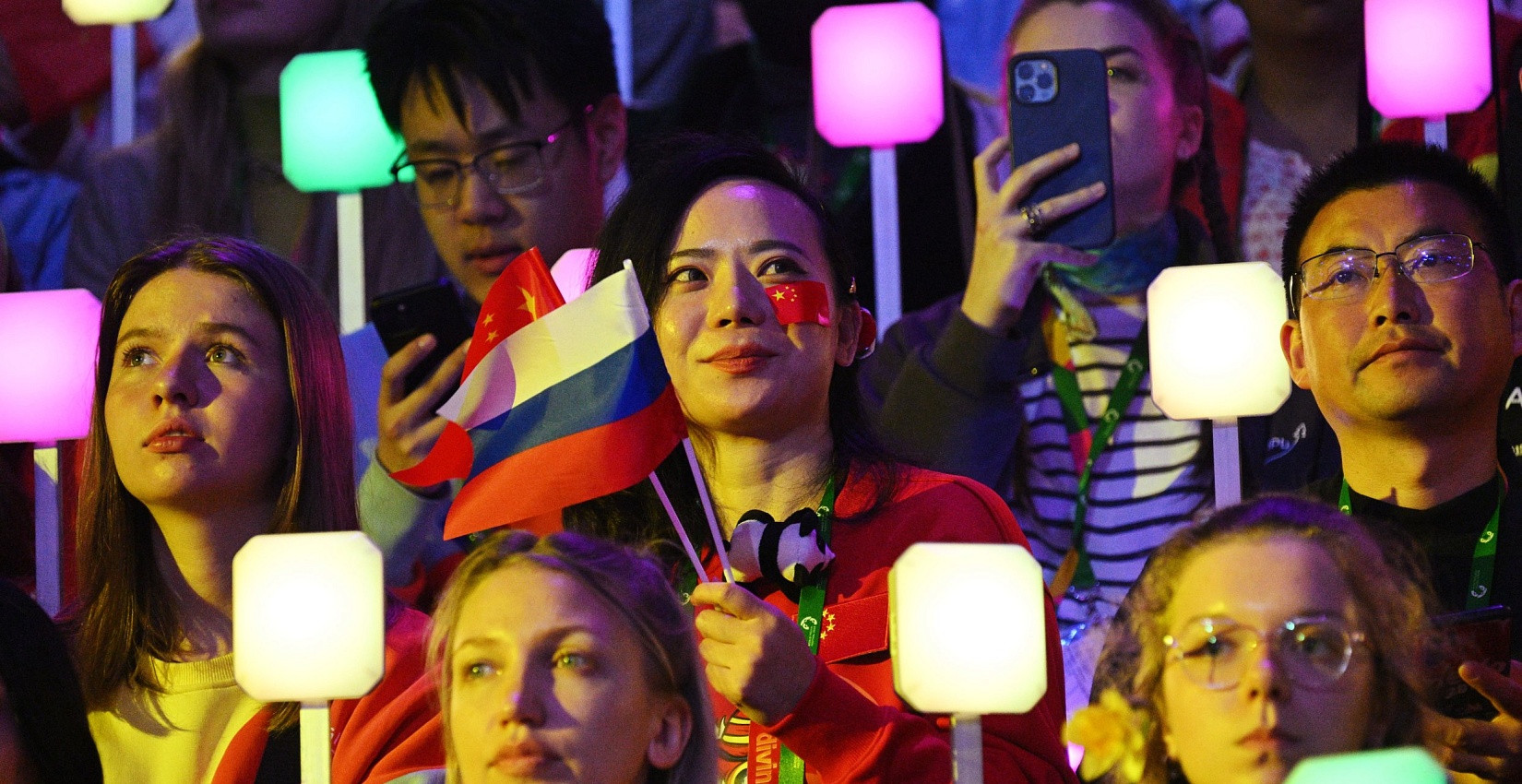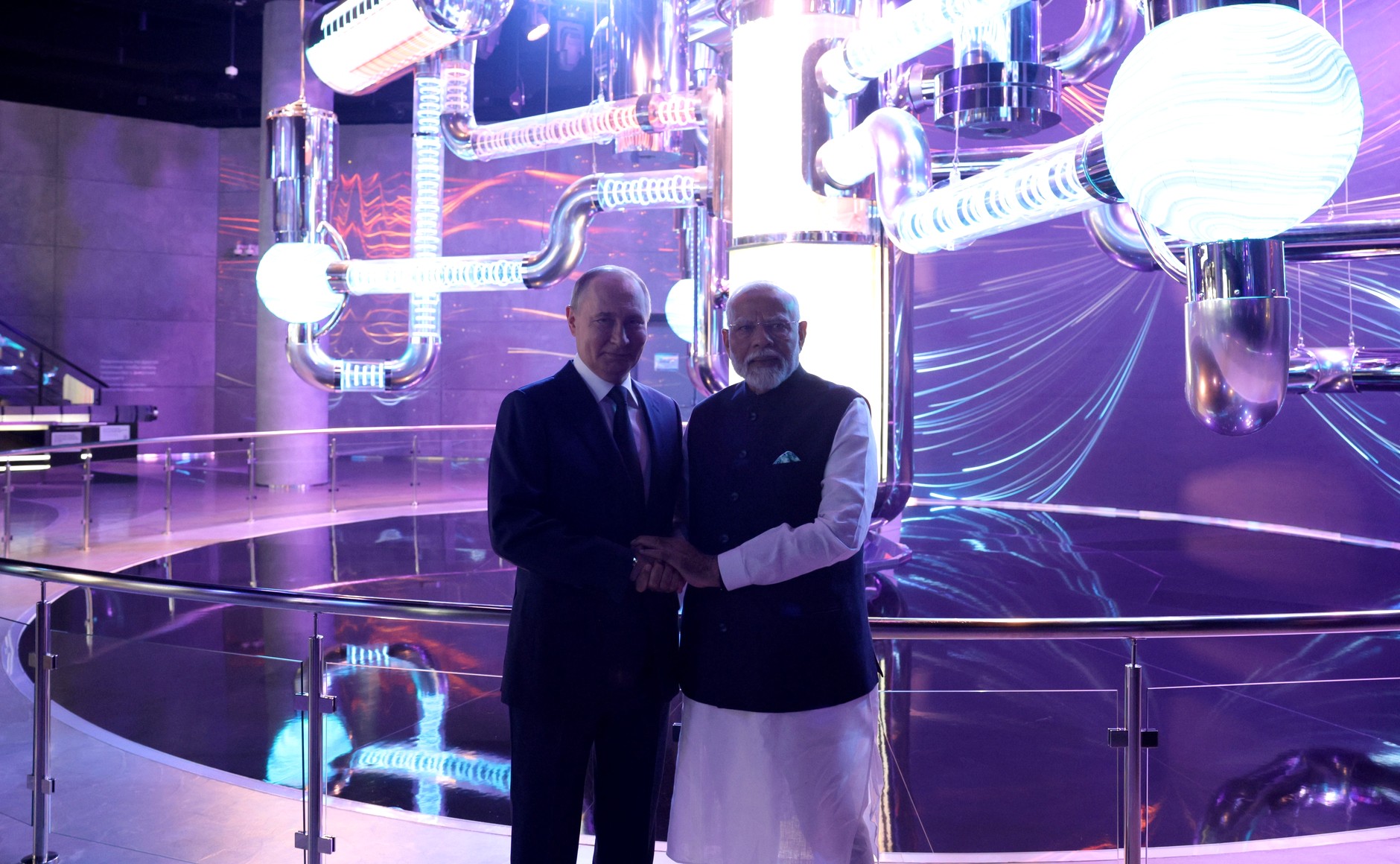
Russia Hopes to Use ‘World Majority’ Against the West
Russia Hopes to Use ‘World Majority’ Against the West
Executive Summary:
- The pro-Kremlin Valdai Discussion Club conference on Sino-Russian relations on October 14–15 demonstrated Moscow’s goals of building a new world order together with the so-called “world majority” as a result of Russia’s declining status on the world stage.
- Even analysts close to the Kremlin recognized that Russia now exerts no significant influence over most other countries and lacks a strong economic foothold, in part due to Western sanctions.
- Russian analysts continue to emphasize how the Kremlin would benefit from a “bigger war” in the Middle East to draw attention away from Ukraine and promote Russia’s typical method of creating global instability to maintain its international influence.
The pro-Kremlin Valdai Discussion Club hosted a conference devoted to Sino-Russian relations on October 14–15 (Valdai Club, October 15). Just before the conference, Valdai analyst Andrey Bystritskiy published an article expressing the traditional Kremlin expectations for cooperation between Moscow and Beijing, specifically in the frame of “the creation of a multi-polar world” where “free trade and the exchange of technology” rules supreme. Bystritskiy also called for more integration of Eurasian countries, especially within the context of economic cooperation (Valdai Club, October 10). In practice, however, Moscow’s allies are uninterested in realizing these goals. Against this background, the Kremlin is once again returning to its usual tactics of attempting to destabilize the world to maintain its international influence.
Even Valdai analysts admit that a “world majority” of non-Western countries —also referred to as the Global South, a favorite subject of propagandists—is highly heterogeneous and, most importantly, does not seek to sever contact with the West. In their report “The World Majority and its Interests,” pro-Kremlin analysts admit that “the behavior of the world’s majority countries may in some cases be the same in relation to the United States and [to] Russia and China,” but may not suit Russia as much as the conduct of US allies. The authors of the report were unable to find a way around stating that “the overwhelming majority of world governments are not prepared now or in the past to choose between Russia and its enemies in the West,” and Russia itself “is not the leader of any significant group of allies” (Valdai Club, October 10). As much as the Kremlin promotes propaganda about Russian strength, it is impossible to deny the country’s declining standing on the global stage.
Against this background, Valdai experts recognize the problem of secondary sanctions, which have become, in their words, “one of the key political risks for foreign partners of Russian business.” Valdai analyst Ivan Timofeyev points out that even if specific countries have not imposed sanctions against Russia themselves, their businesses remain dependent on the West and vulnerable to sanctions pressure if they continue to do business with Moscow. He calculates that from March 2022 to July 2024, there were 511 secondary sanctions imposed. Of these, 107 were imposed on companies in China, 74 in the United Arab Emirates, 52 in Cyprus, and 66 in Türkiye. Besides this, “the emergence of a legal mechanism for introducing secondary sanctions against financial institutions has significantly increased concerns in the banking community of China and other friendly countries” (Valdai Club, October 14). As Russia continues to run out of willing international partners due to pressure from sanctions, its economy will continue to deteriorate as international trade and business dealings become increasingly impossible.
Timofeyev suggests no concrete mechanism to resolve these problems. His colleagues also have no substantial suggestions about the participation of allies in resolving Russia’s economic problems. Valdai expert Yulia Melnikova, for example, advises strengthening the trust of Russian business circles in China, improving “communication practices,” and paying more attention to the “word and image” of assurances of friendship that Beijing regularly makes to Moscow. Instead of solving specific problems with “trust,” Melnikova only offers propaganda methods to convince Russians of China’s friendly intentions. She emphasized the rhetoric of the “friendship [between China and Russia] that is passed down from generation to generation and will never become hostility,” making it seem as if China would never turn against Russia for its own interests. In addition, the author advises developing not only cooperation in the field of security but also expanded joint economic projects within the Shanghai Cooperation Organization (SCO) (Valdai Club, October 8).
Existing joint economic projects with the SCO are not going as smoothly as hoped. Russian military analysts note that even countries friendly to Moscow prefer to rely on Western rather than Russian companies. In particular, Kazakh President Kassym-Jomart Tokayev declared that if plans to build a nuclear power plant in his country are approved, it will be built by an “international consortium.” The authors claim that he means the French multinational nuclear fuel cycle corporation “Orano SA,” partly owned by the Japanese multinational Mitsubishi Heavy Industries. The two companies are already building a nuclear power plant in Sinop, Türkiye, and are projected to build one in Serbia (Topwar.ru, October 10).
Without the expected help from allies, Moscow is ever more reliant on its usual tactic of destabilizing the world order. Russian military experts write openly that “a larger war in the Middle East” would be highly beneficial to Russia because “the West will be forced to redirect its military-political efforts and material resources to that region, as it will no longer have time for us; likewise, the price of oil and gas will rise sharply.” According to them, in this scenario, Ukraine may be left without air defenses, “and Russian air forces will dominate its skies. … As a result, the Ukrainian Nazi regime will be abandoned in its fight against us, and its rapid collapse will be inevitable” (see EDM, January 8, April 22; Topwar.ru, October 14).
Russian propagandists spouted similar rhetoric a year ago when they spoke openly about how Moscow might benefit from Israel’s war with Hamas (see EDM, October 18, 2023). Russian ties with Near Eastern dictators, including those which Moscow supplied weapons to, like Bashar al-Assad, are hardly a secret (Krym Realii, October 11, 2023; see EDM, September 18, October 7). It is unlikely, however, that Moscow has the power to start wars anywhere in the world—if only because it is no longer a leading player and is increasingly dependent on its eastern partners (Valdai Club, October 11, 2023). It is highly probable that against the background of current combat activities, the Kremlin will do everything possible to pour fuel on the situation in the Middle East in hopes of depriving Ukraine of Western aid.
As its war in Ukraine continues, Moscow will increasingly experience a disconnect between its ambitions for a multipolar world and the realities of its diminishing influence. Despite the Kremlin’s attempts to project strength and secure allies, it faces mounting economic challenges due to sanctions, lack of concrete support from allies, and an increasing dependency on partners such as China. The absence of practical solutions to address these economic woes, coupled with Moscow’s traditional tactics of global destabilization, reflects Russia’s lax efforts to solve its deteriorating status. Rather than acting as a vanguard of a new multipolar order, Russia is becoming increasingly isolated, reliant on strategic manipulation, and struggling to secure meaningful international cooperation.


